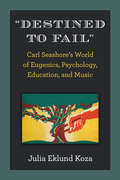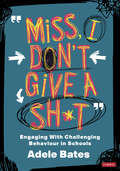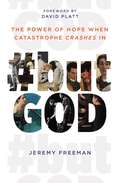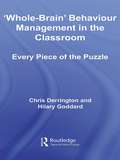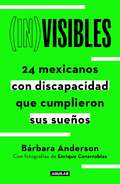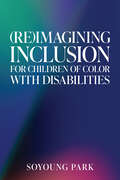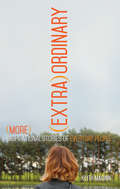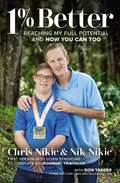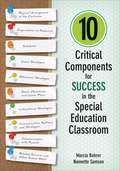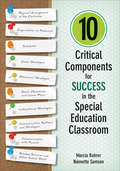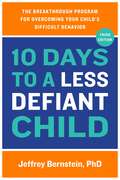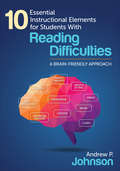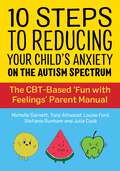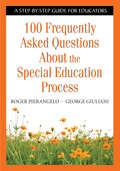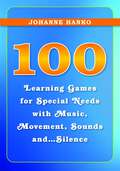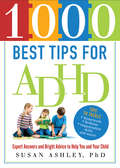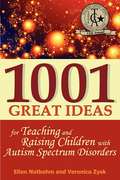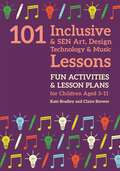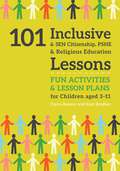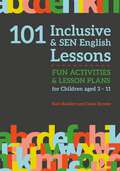- Table View
- List View
"Destined to Fail": Carl Seashore’s World of Eugenics, Psychology, Education, and Music
by Julia KozaA little-known fact about the prominent US psychologist and educator Carl E. Seashore (1866–1949) is that he was deeply involved in the American eugenics movement. He was among the US academics to support eugenics long before German Nazis embraced it. A titan in a host of disciplines and a proponent of radical education reform, Seashore used his positional power to promote a constellation of education reforms consistent with central precepts of eugenics. Many of these reforms, including tracking, gifted and talented programs, and high-stakes standardized testing, were adopted and remain standard practice in the United States today. He promulgated the idea that musical talent is biologically inheritable, and he developed the first standardized tests of musical talent; these tests were used by early-twentieth-century researchers in their attempts to determine whether there are race differences in musical talent. Seashore’s ideas and work profoundly shaped music education’s research trajectory, as well as enduring “commonsense” beliefs about musical ability. An intersectional analysis, “Destined to Fail” focuses on the relationship between eugenics and Seashore’s views on ability, race, and gender. Koza concludes that Seashore promoted eugenics and its companion, euthenics, because he was a true believer. She also discusses the longstanding silences surrounding Seashore’s participation in eugenics. As a diagnosis and critique of the present, “Destined to Fail” identifies resemblances and connections between past and present that illustrate the continuing influence of eugenics—and the systems of reasoning that made early-twentieth-century eugenics imaginable and seem reasonable—on education discourse and practice today. It maps out discursive, citational, and funding connections between eugenicists of the early twentieth-century and contemporary White supremacists; this mapping leads to some of Donald Trump’s supporters and appointees.
"Miss, I don’t give a sh*t": Engaging with challenging behaviour in schools (Corwin Ltd)
by Adele BatesDo you want to be an inspiring teacher for everyone you teach, even the trickier cherubs in your class? Or maybe you just want to get through a lesson without a desk flying at you or a blazer being set alight? In this down-to-earth book Adele Bates shares practical approaches, strategies and tips from the classroom on how to help pupils with behavioural needs thrive with their education. Packed full of real-life classroom scenarios, student voice and relevant theory, every chapter offers an Action Box helping you to implement these strategies – next lesson, next week and long term. From relationship building and teaching self-regulation, to fostering inclusivity, paying attention to your own self-care and schoolwide approaches, Adele Bates unpicks some of the most difficult aspects of being a teacher and empowers you to grow as a confident classroom professional.
"Miss, I don’t give a sh*t": Engaging with challenging behaviour in schools (Corwin Ltd)
by Adele BatesDo you want to be an inspiring teacher for everyone you teach, even the trickier cherubs in your class? Or maybe you just want to get through a lesson without a desk flying at you or a blazer being set alight? In this down-to-earth book Adele Bates shares practical approaches, strategies and tips from the classroom on how to help pupils with behavioural needs thrive with their education. Packed full of real-life classroom scenarios, student voice and relevant theory, every chapter offers an Action Box helping you to implement these strategies – next lesson, next week and long term. From relationship building and teaching self-regulation, to fostering inclusivity, paying attention to your own self-care and schoolwide approaches, Adele Bates unpicks some of the most difficult aspects of being a teacher and empowers you to grow as a confident classroom professional.
"Mommy, What Is Deaf?"
by Nikki Sian-Leigh AksamitThe author of "Mommy, What is Dead?", Nikki Sian-Leigh Aksamit, has added "Mommy, What is Deaf?" as the next book in her "Mommy, What is...?" series. Aimed at preschool age children, "Mommy, What is Deaf?" explains sound, the definition of "deaf", and all the reasons why some people can not hear. With straight forward text, and uncomplicated drawings, young children easily understand how the ears work, and why in some people they do not. Kids are also challenged to "feel" the sounds around them, as deaf people do.
#butGod: The Power of Hope When Catastrophe Crashes In
by Jeremy Freeman"Sir, your sons have been in a car accident. How quickly can you get here?"Join Pastor Jeremy Freeman as he shares how the harrowing phone call that no parent wants to receive would lead to a miraculous outcome that only God could deliver.When Jeremy and Emily Freeman's teenage son Caleb was in a devastating car accident, doctors gave him a 10 percent chance of survival. Fear of losing a child was all too fresh for the Freemans--their seven-year-old son, Trey, had died just four years earlier from a genetic immunodeficiency. But God had other plans.In #butGod, Jeremy shares the incredible story of Caleb's recovery, the darkness that nearly overtook their family in the waiting, and the #butGod movement that captured the prayers of Christians around the world. #butGod includes heartfelt excerpts from Emily's prayer journal and encouragement from Jeremy that goes beyond platitudes to a hard-won trust in God's goodness.The Freeman family's incredible story offers:Greater understanding of the beauty God can bring through sufferingAn honest glimpse of how one family grew closer together despite grief, tension, and doubtA powerful example of how God works through the prayers of His peopleHope that only God can provideWhatever sorrow you're walking through, #butGod leads you to the sweetness found in trusting God with suffering--and the deeper faith that comes from seeing His purpose in the pain.Praise for #butGod:"Pastor Jeremy Freeman and his family have endured crushing disappointment and heartbreak, but they've also experienced the redemptive and healing power of God. If you are facing significant challenges, Pastor Jeremy's book #butGod will build your faith and equip you with the strength to overcome."--Craig Groeschel, founder and senior pastor of Life.Church and New York Times bestselling author"There are some books that when you start reading you cannot put them down. #butGod is one of those books. This is an amazing story that will captivate you. You will laugh and cry. You will weep for sorrow and weep for joy. And in it all, you will see the amazing grace of God and His sustaining power and love for His children."--Dr. Daniel L. Akin, President, Southeastern Baptist Theological Seminary, Wake Forest, North Carolina
'Whole-Brain' Behaviour Management in the Classroom: Every Piece of the Puzzle
by Chris Derrington Hilary GoddardRepresenting a brave and insightful shift away from narrow perspectives on behaviour management, this book draws practitioners towards a more holistic understanding of ourselves and how we impact on children’s learning and behaviour. The authors’ brilliant new conceptual model of ‘whole-brain’ behaviour management challenges existing theories about the management of children’s behavioural issues. Their pioneering ‘whole-brain’ approach draws upon a range of influences and concepts that cross discipline boundaries, expanding on the practitioner’s understanding of the complexity of children’s behaviour through their own knowledge of neuroscience, biopsychosocial theory and interpersonal awareness. The book will take the reader through a process of self-evaluation in which their preferred ways of thinking, acting and relating will be explored and interpreted in order to help them understand the impact of their ‘personal style’ on how the children in their care behave. Offering new insights and creative solutions, this is a practical guide to coach practitioners in their personal and professional development, helping them to raise the achievement of children exhibiting even the most challenging of behaviour.
(In)visibles
by Bárbara AndersonSi en México más del 16% de la población, cerca de 21 millones o 1 de cada 6 mexicanos cuentan con algún tipo de condición discapacitante, ¿por qué parece que son muchos menos los casos que conocemos? Porque las personas con discapacidad (pcd) en nuestro país son una fuerza invisible. Si no es cada cuatro años que se celebran los paralímpicos, si no se acerca el Día Internacional de las pcd, cuando las marcas realizan acciones; si no es que el gobierno da beneficios fiscales para impulsar la inserción laboral de este grupo, el resto del tiempo las personas con discapacidad viven entre las sombras. Este libro busca arrojar un poco de luz a apenas veinticuatro de esos millones que no vemos. Con discapacidades de nacimiento o adquiridas y de diversos tipos, y origen de varias partes del país, medallistas olímpicos, empresarios, filántropos, ejecutivos, políticos, servidores públicos, artistas, activistas, conferencistas, académicos, abogados, un médico y hasta un standupero cuentan por primera vez sus historias con resiliencia, valentía y un propósito: ser referentes para otras pcd y motivar a la población general a ser agentes de cambio, a contribuir en multiplicar esa luz y velar por la inclusión en todos los aspectos de la vida. Un libro desgarrado, inspirador y sui géneris en el que la periodista y activista Bárbara Anderson presta su pluma para dar voz a quienes no cuentan, al tiempo que el reconocido fotógrafo Enrique Covarrubias ilumina sus rostros por primera vez con una mirada entre iguales. Invisibles es una lectura que cambia radicalmente la manera en la que vemos la discapacidad, mueve conciencias e invita a la acción.
(Re)Imagining Inclusion for Children of Color with Disabilities
by Soyoung ParkA transformative vision to shift educator practice and make systemic changes that can advance educational inclusion of students of color with disabilities
**Missing**: More Inspirational Stories of Everyday People ((Extra)Ordinary #2)
by Keith Maginn“This world needs books like these right now—the inspirational people within these pages.” - Kimberly Morand, blogger"When everything in life goes wrong, what keeps people going? This wonderful collection of answers tells how some conquered the near impossible." - Frank Litsky, retired editor and reporter, The New York TimesBurned on 100 percent of his body as a young boy, John O’Leary was given a 1 percent chance of survival. Thirty years later, he is a bestselling author, nationally known speaker, beloved husband, and dedicated father.Once controlled by addiction, Todd Crandell is now an addiction counselor—and a world-class Ironman triathlete.Born with no arms or legs, Nick Vujicic fought back from the brink of suicide to become a faith-driven motivational speaker admired by people around the world.These are just three of the inspiring lives featured in (Extra)Ordinary: More Inspirational Stories of Everyday People—tales of individuals who started out as “ordinary” but have proven to be anything but.Each of the people featured in (Extra)Ordinary reminds us of the depth of human potential and calls us to find our own strength to make our mark on the world around us. (Extra)Ordinary opens our eyes to the power that rests in each and every person!"I love this book. If you are looking for a book to inspire you, get yourself a copy. You will not be disappointed." - J. Bronder Book Reviews
1% Better: Reaching My Full Potential and How You Can Too
by Chris Nikic Nik NikicWhat would life look like if you measured your success by improvements instead of victories? Nik Nikic shares the incredible story of his son Chris&’s journey to become the first person with Down syndrome to ever complete an IRONMAN® triathlon, inspiring others to achieve their goals by getting 1 percent better every day.From the moment Chris Nikic was born, his parents knew he could achieve anything he set his mind to do. So when he became involved in triathlons with the Special Olympics, his dad, Nik, took on the role of coach and encouraged Chris to aim even higher. Together, they set their sights on making history—Chris becoming the first person with Down syndrome to complete an IRONMAN® triathlon.Written from Chris&’s father&’s perspective, Nik shares the 1% Better mindset that has helped Chris achieve many of his goals—and the underlying principles of the 1% Better system can help you pursue and achieve your dreams too! Through Chris and Nik&’s story, learn the benefits of applying the model to your own life and discover how to:Overcome the mental hurdles of painStay motivated using three irrefutable laws of motivationSee failures as opportunities for improvementForm a lifelong habit of successYou may never be the best. But you can be better than your best when you stop imposing self-limitations and begin the journey to reach your goals—one confident step at a time.Publisher&’s Note: 1% Better is written in Nik Nikic&’s voice. Chris and his accomplishments are the focus of 1% Better, and Chris is a coauthor of the book as he was interviewed by his father and the writer.
10 Critical Components for Success in the Special Education Classroom
by Marcia Rohrer Nannette SamsonYour blueprint for building structure, consistency, and accountability year-round! This must-have guide provides special education teachers with a solid, workable action plan to manage the classroom and ensure student success. Learn instructional strategies to: Support all students with special needs, including those with more severe disabilities Organize your classroom, materials, and staff and student schedules Plan and assess standards-based lessons, annual IEP's, behavioral interventions, and more Foster parent communication and staff collaboration Packed with real-world examples, free tools to use and share, a list of resources and a helpful glossary, this dynamic resource will inspire you, develop your teacher toolbox, and ensure your students are on the path to achievement!
10 Critical Components for Success in the Special Education Classroom: Gargiulo: Special Education In A Contemporary Society 5e + Rohrer: 10 Critical Components For Success In The Special Education Classroom
by Marcia W. Rohrer Nannette M. SamsonYour blueprint for building structure, consistency, and accountability year-round! Often teachers of all experience levels struggle to effectively manage special education classrooms. In this must-have guide, Rohrer and Sampson provide a solid, workable action plan to ensure measurable success for even your most challenging student. Discover a variety of research-based instructional strategies to: Support all students, including those with autism and severe learning disabilities Organize your classroom, materials, and staff and student schedules for optimal teaching and learning Execute well-planned standards-based lessons, annual IEP’s, PLAALP’s, behavioral interventions, and visual supports Develop communication and social skills within a language-rich environment Foster parent communication and staff collaboration Packed with real-world examples, free tools to use and share, a list of resources and a helpful glossary, this dynamic resource will inspire you, develop your teacher toolbox, and ensure your students are on the path to achievement! "10 Critical Components for Success in the Special Education Classroom offers practical and easy-to-use ideas for organizing your physical classroom space, materials, student and staff schedules. Readers will also receive well thought out strategies that will definitely aid in the ultimate end result—student success!" —Avis Canty, Special Education Teacher Tanglewood Middle School, Greenville, SC "The path to success for students with autism and intellectual disabilities starts here, when their teachers implement the essential critical components outlined in this book." —Renee Bernhardt, Learning Support for Special Education and RTI Cherokee County School District, Canton, GA
10 Critical Components for Success in the Special Education Classroom: Gargiulo: Special Education In A Contemporary Society 5e + Rohrer: 10 Critical Components For Success In The Special Education Classroom
by Marcia W. Rohrer Nannette M. SamsonYour blueprint for building structure, consistency, and accountability year-round! Often teachers of all experience levels struggle to effectively manage special education classrooms. In this must-have guide, Rohrer and Sampson provide a solid, workable action plan to ensure measurable success for even your most challenging student. Discover a variety of research-based instructional strategies to: Support all students, including those with autism and severe learning disabilities Organize your classroom, materials, and staff and student schedules for optimal teaching and learning Execute well-planned standards-based lessons, annual IEP’s, PLAALP’s, behavioral interventions, and visual supports Develop communication and social skills within a language-rich environment Foster parent communication and staff collaboration Packed with real-world examples, free tools to use and share, a list of resources and a helpful glossary, this dynamic resource will inspire you, develop your teacher toolbox, and ensure your students are on the path to achievement! "10 Critical Components for Success in the Special Education Classroom offers practical and easy-to-use ideas for organizing your physical classroom space, materials, student and staff schedules. Readers will also receive well thought out strategies that will definitely aid in the ultimate end result—student success!" —Avis Canty, Special Education Teacher Tanglewood Middle School, Greenville, SC "The path to success for students with autism and intellectual disabilities starts here, when their teachers implement the essential critical components outlined in this book." —Renee Bernhardt, Learning Support for Special Education and RTI Cherokee County School District, Canton, GA
10 Days to a Less Defiant Child, Second Edition: The Breakthrough Program for Overcoming Your Child's Difficult Behavior
by Jeffrey BernsteinOccasional clashes between parents and children are not uncommon, but when defiant behavior--including tantrums, resistance to chores, and negativity--becomes chronic, it causes big problems within the family. In 10 Days to a Less Defiant Child,family and child psychologist Dr. Jeffrey Bernstein shares a groundbreaking ten-day program to help parents understand their child’s behavior and regain control of their household. In this updated edition, parents will learn how to face new challenges, including defiance resulting from excessive technology use (even to the point of addiction) and the stress of modern family life. Dr. Bernstein explains what causes defiance in kids and why it’s so destructive to the family, then offers parents a step-by-step guide on how to reduce conflict and end upsetting behaviors.
10 Essential Instructional Elements for Students With Reading Difficulties: A Brain-Friendly Approach
by Andrew P. JohnsonBrain-friendly strategies to help all students become lifelong readers Learning to read is more than just an educational issue; it’s a social justice issue. Did you know that struggling readers are twice as likely as their peers to drop out of high school? Through time-tested, research-based neurocognitive teaching strategies, 10 Essential Instructional Elements for Students with Reading Difficulties will enable you to hone readers’ skills and help students from all grade levels develop their ability to create meaning from print. Drawing from five key areas of neurocognitive research, Andrew Johnson provides a ten-point teaching strategy that encompasses vocabulary, fluency, comprehension, writing and more. A key resource for creating intervention plans for struggling readers, features include: Information on the often-overlooked importance of emotions in the process of overcoming reading struggles Strategies to promote voluntary reading, even for the most reluctant students Useful resources such as graphic organizers, additional reading and writing activities, and QR codes that link to videos Use these strategies today and you can count on more students leaving your classrooms as fluent, lifelong readers. "Dr. Johnson tells the story of reading in a logical and clear manner with a book that is excellently researched, immaculately referenced, and full of practical tips for the practitioner." Terry Bernstein, Former Senior Literacy Difficulties Specialist London Boroughs of Camden and Westminster, UK "This is the text I wish I had when I began to teach. Dr. Johnson clearly illustrates the process our brain uses to create meaning from text." Marty Duncan, Ed.D., Author and Former Educator
10 Essential Instructional Elements for Students With Reading Difficulties: A Brain-Friendly Approach
by Andrew P. JohnsonBrain-friendly strategies to help all students become lifelong readers Learning to read is more than just an educational issue; it’s a social justice issue. Did you know that struggling readers are twice as likely as their peers to drop out of high school? Through time-tested, research-based neurocognitive teaching strategies, 10 Essential Instructional Elements for Students with Reading Difficulties will enable you to hone readers’ skills and help students from all grade levels develop their ability to create meaning from print. Drawing from five key areas of neurocognitive research, Andrew Johnson provides a ten-point teaching strategy that encompasses vocabulary, fluency, comprehension, writing and more. A key resource for creating intervention plans for struggling readers, features include: Information on the often-overlooked importance of emotions in the process of overcoming reading struggles Strategies to promote voluntary reading, even for the most reluctant students Useful resources such as graphic organizers, additional reading and writing activities, and QR codes that link to videos Use these strategies today and you can count on more students leaving your classrooms as fluent, lifelong readers. "Dr. Johnson tells the story of reading in a logical and clear manner with a book that is excellently researched, immaculately referenced, and full of practical tips for the practitioner." Terry Bernstein, Former Senior Literacy Difficulties Specialist London Boroughs of Camden and Westminster, UK "This is the text I wish I had when I began to teach. Dr. Johnson clearly illustrates the process our brain uses to create meaning from text." Marty Duncan, Ed.D., Author and Former Educator
10 Steps to Reducing Your Child's Anxiety on the Autism Spectrum: The CBT-Based 'Fun with Feelings' Parent Manual
by Julia Cook Michelle Garnett Louise Ford Dr Anthony Attwood Stefanie RunhamRecognising, expressing and understanding emotions helps young children make sense of their life experiences. Children diagnosed with autism can have significant difficulties with recognising and processing emotions which can lead to high levels of anxiety as they struggle to make sense of the unpredictable world around them.The 'Fun with Feelings' programme is designed to help parents support their children with emotional regulation and to decrease anxiety. This guide is structured around 10 stages. The initial four stages prepare parents to implement the programme with their child. These stages help parents understand the causes of anxiety and provide practical strategies for creating a toolbox to reduce anxiety. The final six stages are used in conjunction with Having Fun with Feelings on the Autism Spectrum: A CBT Activity Book for Kids Age 4-8, allowing parents to support their child while working through the activity book.Written by world-leading experts in the field, 10 Steps to Reducing Your Child's Anxiety on the Autism Spectrum provides the steppingstones for parents of young children with autism to better understand their child's emotional skill set and empower them to understand and articulate their feelings.
100 Frequently Asked Questions About the Special Education Process: A Step-by-Step Guide for Educators
by Roger Pierangelo George A. GiulianiA jargon-free overview of special education's prereferral process, IEPs, eligibility services, procedural and legal safeguards, annual reviews and evaluations, and transitions from school to adult life.
100 Learning Games for Special Needs with Music, Movement, Sounds and...Silence
by Johanne HankoGames and activities are a great way for children with special needs to learn important skills. This book provides inspiration and guidance for special education teachers, teaching assistants, parents and carers on how to use lively and engaging play ideas to foster learning and development. Targeting key skills including listening, self-awareness, movement, creative thinking and relaxation, each game has been developed with the capabilities of children with special needs in mind. The appropriate age group is clearly identified, and possible variations for different abilities are provided. All of the instructions are easy to follow and there are cheerful illustrations throughout. Using music, dance, art, word games and breathing exercises, this book is packed with creative and enjoyable games that make learning fun. This user-friendly activity book will be an ideal resource for use in special education schools, inclusive mainstream classrooms, day-care, residential and respite settings, or at home.
100 Things Every College Student with a Disability Ought to Know
by Kendra D. Johnson Trudie N. HinesThis book will arm you with information about how to make informed choices, how to receive accommodations for a disability, what type of assistance is available, and where and how to communicate your disability-related college needs. The authors have summarized the crucial information students need to know to be successful in both academic and campus life. Student comments are included throughout the book.
1000 Best Tips for ADHD
by Susan AshleyQuick, easy to read and easy to put into action, 1000 Best Tips for ADHD allows readers to browse by each specific challenge so that they can minimize their search time and find the answers they need right now. Because no two children with ADHD are alike, Dr. Ashley presents more than the usual one-solution-fits-all approach in this book. With a multitude of options and solutions for every question, parents can find the one that is best suited for their child.
1001 Great Ideas for Teaching and Raising Children with Autism Spectrum Disorders
by Ellen Notbohm Veronica ZyskThis book is a cool guide for parents and teachers. It even has suggested sites to check out with your kids. You'll find it very helpful.
101 Inclusive and SEN Art, Design Technology and Music Lessons: Fun Activities and Lesson Plans for Children Aged 3 – 11
by Claire Brewer Kate BradleyCreate an inclusive classroom for all with these fun and accessible activities for Art, Design Technology and Music lessons. Each lesson is tailored for children working below National Curriculum levels and includes a learning objective, the resources needed, the main activity, a plenary and a consolidation activity to help support children's understanding. Activities such as 'Peg Painting' and 'Build my Car' build visual, auditory, social communication and fine motor skills and support self-esteem and mental wellbeing.The 101 creative activities in this book aim to support the ever-increasing demands on teachers to meet the needs of the growing number of SEN learners in mainstream settings. It also offers practical lesson plans that have been specifically designed to promote fine and gross motor skills and utilise lots of visual stimulus.
101 Inclusive and SEN Citizenship, PSHE and Religious Education Lessons: Fun Activities and Lesson Plans for Children Aged 3 – 11
by Claire Brewer Kate BradleyCreate an inclusive classroom for all with these fun and accessible activities for PSHE, Citizenship and Religious Education lessons. Each lesson is tailored for children working below National Curriculum levels and includes a learning objective, the resources needed, the main activity, a plenary and a consolidation activity to help support children's understanding. These subjects are key to teaching children the concepts of self-awareness, independence and community, which can be difficult to teach to children with SEN but are vital for their self-esteem and mental wellbeing.The activities in this book have been specifically designed to promote fine and gross motor skills and utilise lots of visual stimulus, which is important for working with children with SEN. This straightforward and practical book offers you 101 creative classroom activities for teaching Citizenship, PSHE and Religious Education to pupils who are working below national curriculum levels, as well as mapping the range of additional skills they will acquire.
101 Inclusive and SEN English Lessons: Fun Activities and Lesson Plans for Children Aged 3 – 11
by Claire Brewer Kate BradleyCreate an inclusive classroom for all with this resource, full of ideas for engaging and accessible English lessons. Each lesson is tailored to objectives for children working below National Curriculum levels and includes a learning objective, the resources needed, the main activity, a plenary and a consolidation activity to help support children's understanding. When working with children, and especially those with SEN, lessons need to meet their interests as well as their needs by containing visual stimulus and promoting fine and gross motor skills, and the activities in this book have been specifically designed with this in mind. This straightforward and practical book offers you 101 creative classroom activities for teaching English to pupils who are achieving at P Levels 4 - 8, as well as mapping the range of additional skills they will acquire.
